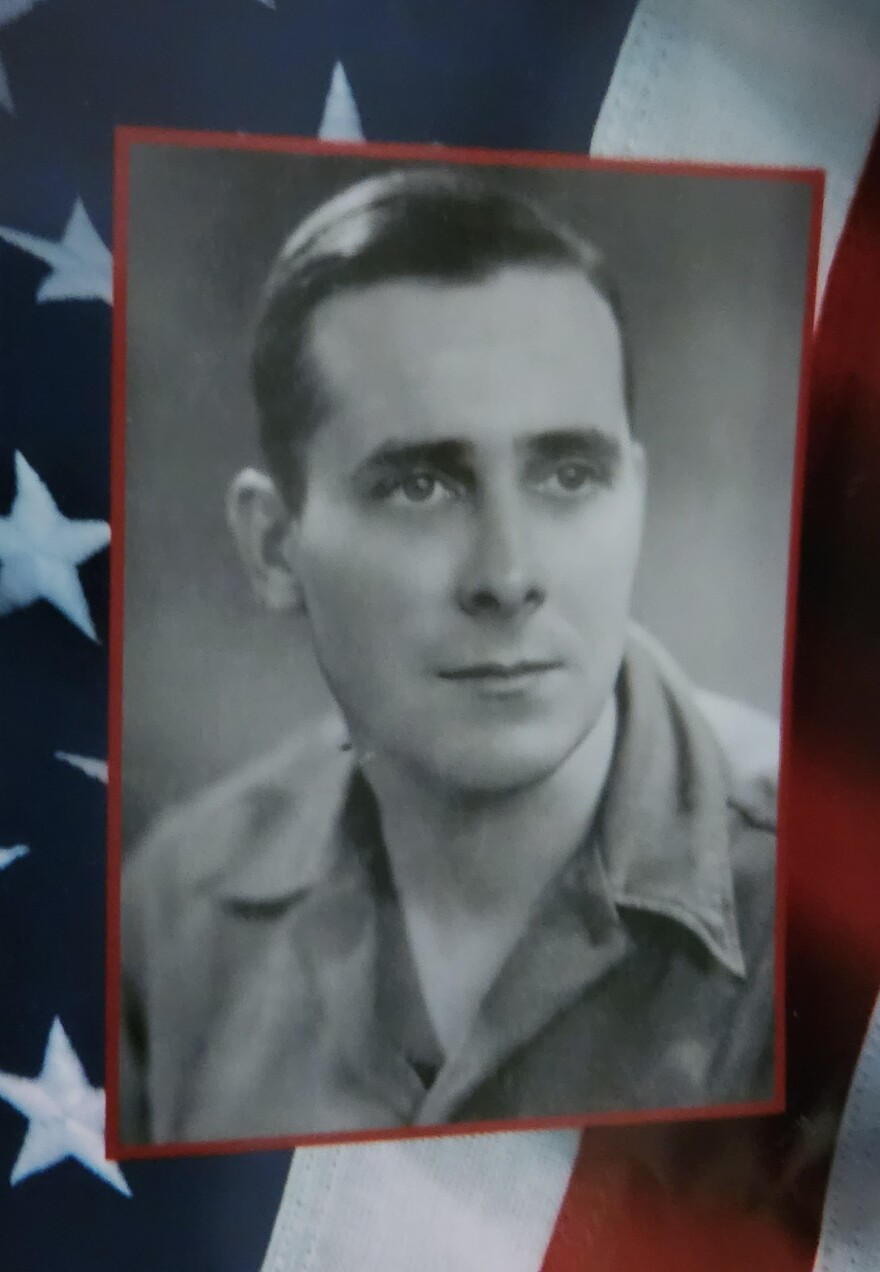My grandson's teacher is honoring the veterans in the lives of her first-graders. Students were encouraged to bring a photo of a family member who has served, or is serving, in the military.
My job? Take a photo of a treasured photo and send it by text message to my daughter. She did the rest, making a print for the display.
Proudly, a 7-year-old had a photo to contribute … of a great-grandfather he never knew. He was born 13 years after the former Army tech sergeant died. Yet, the bloodlines are there.
On this end, it prompted a 67-year-old to revisit the service of the man in the photo – my father, Wendell Kindred. He was inducted into the Army on Dec. 12, 1941, five days after the bombing of Pearl Harbor, and honorably discharged on Oct. 29, 1945.
In between, he served 16 months of combat duty in Europe and "engaged in five campaigns, including the Battle of the Bulge."
They are his words, not mine. He wrote them while recounting events that led to him being wounded in battle and receiving a Purple Heart.
He also wrote this regarding World War II:
"There is nothing glamorous about a war. At times it seems as though there is no alternative, and this was one of those times."
On Veterans Day, we think of the thousands who have fought and sacrificed for the freedoms we enjoy. We remember those who never returned home to fall in love, start a family, find their life's work.
My dad was able to do all of those things and he was grateful for that. Yet, his military service never left him. It was a source of pride until his death at 91.
He died in 2005 on Halloween, a day known for having the daylights scared out of you. It was fitting given the number of times he must have faced fear on the battlefield.
He never spoke much about those experiences, but he wrote about one. A grandson's need for a photo led me to read again about the battle that injured my father. It is a single-spaced, full page account of a harrowing day as a soldier.
It makes Veterans Day poignant, personal.
On Aug. 6, 1944, my father's division, the 35th, was ordered to move to the area of General Patton's third Army near the French village of St. Hilare.
"We were moving in a motor convoy at night, with total blackout," he wrote. "The move was stopped by traffic tie-ups and countermanding orders. It was total confusion."
A radio sergeant, he was tasked with sending and receiving messages in morse code. The blackout required doing it under the cover of a pup tent with a flashlight and only a small hole for light to come through. He also had headphones on, so "I could see or hear nothing," he wrote, other than messages he sent and received.
Later, when he uncovered himself, it was "like daylight." The Germans had dropped flares from airplanes and started bombing the rear of the convoy. Everyone near him had scattered to seek a safer place.

"I found a small stream and a small place along the bank that would provide a measure of protection," he wrote. "My legs from the knees back were unprotected. I could hear the planes and bombs. They were getting closer with each plane. Finally, I could tell that we were about to get it.
"The first bomb was close, the second closer, and the third started whistling, and I just knew it was going to land on top of me. My thought: 'In such a short time, I would be blown apart and nobody in my family would know what had happened to me.'
"Fortunately, it was a near miss. My legs were blasted from the concussion from the explosion. My left leg was painfully injured in the knee joint."
After the bombing ceased, he was found by fellow soldiers and taken to a nearby house. A French family gave him cognac and hot chocolate and "put me to bed," he wrote. The next day, he rejoined his company.
The legs showed no outward sign of injury, but were very painful. They later became black from ruptured blood vessels "from the knee to the top of my combat boots."
"I did not want to go back to the medics for fear of being sent to the hospital and being reassigned to another unit," he wrote.
Months later, his left leg "festered up," causing him to be hospitalized. It was at that point he learned a piece of shrapnel had been in the leg since the bombing.
He healed up, served out his term.
He came home, married my mother, ran a successful farm operation and raised my sister, brother and then me. He lived for 61 years after that dark night in France that he feared would be his last.
"There is nothing glamorous about a war."
Any veteran will tell you that. Our family has it in writing, from a veteran we held dear.
Poignant and personal indeed.
Copyright 2025 WGLT

